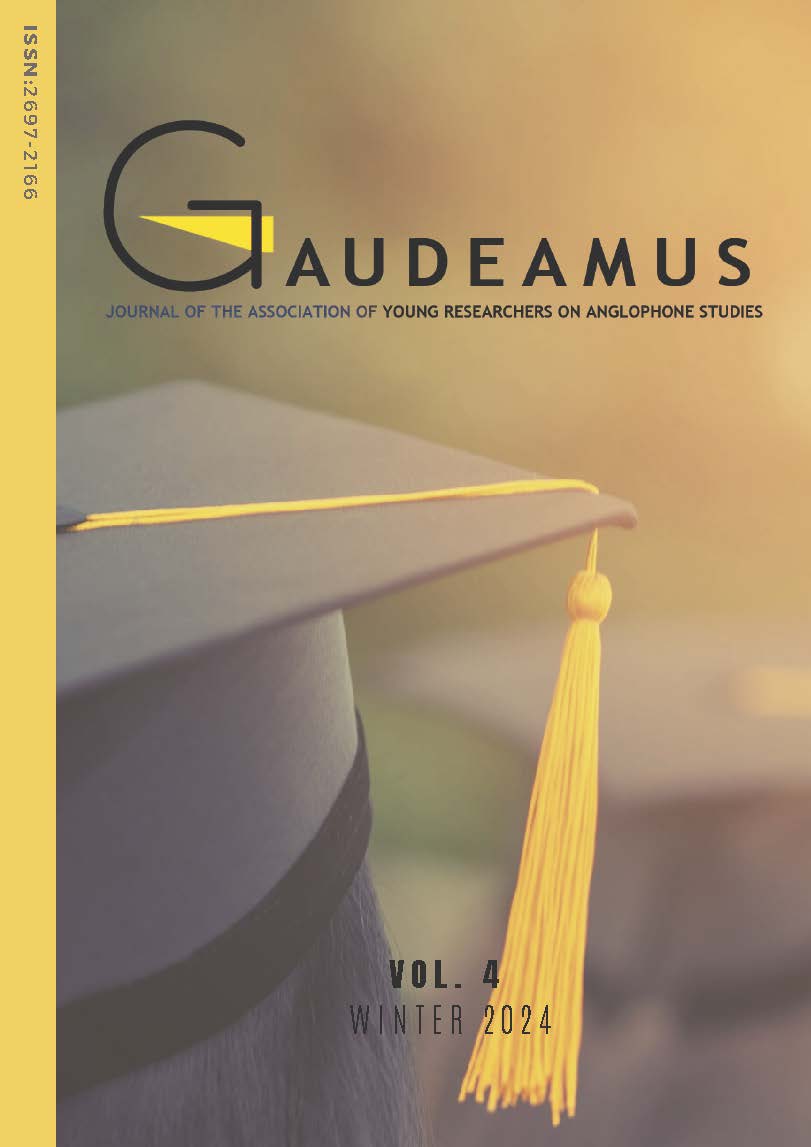Abstract
This paper aims at examining English neologisms that were introduced into the Oxford English Dictionary Online between 2018 and 2022. The research seeks to provide information about the most productive word formation mechanism during that period. The compilation of the data required the creation of a corpus with all the new terms to fulfil that objective. Due to the great volume of new word entries, proportional samples were selected to ensure the representativeness of the data for each of the years. The findings were analysed quantitatively and qualitatively to obtain a comprehensive discussion of the results. The conclusions drawn from this study highlight a shift in the most productive word formation process from affixation to compounding.
References
Algeo, John. 1993. “Desuetude among New English Words.” International Journal of Lexicography, 6.1: 281-293. https://doi.org/10.1093/ijl/6.4.281
———. 1994. “Problems in New-Word Lexicography.”Dictionaries: Journal of the Dictionary Society of North America, 15: 39-46. https://doi.org/10.1353/dic.1994.0015
Al-Salman, Saleh, and Ahmad S. Haider. 2021. “COVID-19 trending neologisms and word formation processes in English.” Russian Journal of Linguistics, 25. 1: 24-42. https://doi.org/10.22363/2687-0088-2021-25-1-24-42
Atkins, B.T. Sue, and Michael Rundell. 2008. The Oxford Guide to Practical Lexicography. Oxford: Oxford University Press.
Bauer, Laurie. 1983. English word formation. Cambridge: Cambridge University Press.
Bauer, Laurie and Rodney Huddleston. 2002. “Lexical word formation”. The Cambridge Grammar of the English Language. Eds. Rodney Huddleston and Geoffrey K. Pullum. Cambridge: Cambridge University Press: 1621-1723.
Bueno Ruiz, P. J. 2021. “When Neologisms don’t reach the dictionary: Occasionalisms in Spanish”. Lexicography for Inclusion (Vol. 1). Eds. Zoe Gavriilidou, Maria Mitsiaki and Asimakis Fliatouras. Komotini: Democritus University of Thrace: 333-341. [Accessed on September 10, 2023, from https://t.ly/X-ULI]
Cabré, María Teresa. 2015. “Bases para una teoría de los neologismos léxicos: primeras reflexiones”. Neologia das Línguas Románicas. Eds. Ieda María Alves, I. and Eliane Simões Pereira. Sao Paulo: CAPES Humanitas: 79-107.
Chen, Guohua and Lixia Cheng. 2016. “Criteria for new inclusions in the OED – A case study of informatization”. English Today, 32.3: 20-27. https://doi.org/10.1017/S0266078415000589
Creese, Sharon. 2008. “Neologisms in Online British-English versus American-English Dictionaries.” The XVIII EURALEX International Congress “Lexicography in Global Contexts”. Eds. Jaka Čibej, Vojko Gorjanc, Iztok Kosem, and Simon Krek. Ljubljana: University of Ljubljana: 545-557. [Accessed on October 5, 2023, from https://t.ly/pSA4I]
Crystal, David. 2000. “Investigating Nonceness: Lexical Innovation and Lexicographic Coverage.” Manuscript, narrative, lexicon: Essays on literary and cultural transmission in honor of Whitney F. Bolton. Eds. Robert Boenig and Kathleen Davis. Pennsylvania: Bucknell University Press: 218-231.
———. 2003. The Cambridge encyclopedia of the English language. Cambridge: Cambridge University Press.
Hohenhaus, Peter. 2005. “Lexicalization and institutionalization.” Handbook of word formation: Studies in natural language and linguistic theory 64. Eds. Pavol Štekauer and Rochelle Lieber. The Netherlands: Springer: 353-373.
———. 2007. “How to do (even more) things with nonce words (other than naming).” Lexical creativity, texts and contexts. Ed. Judith Munet. Amsterdam and Philadelphia: John Benjamins Publishing Company: 15-38
Lehrer, Adrienne. 2003. “Understanding trendy neologisms.” Rivisita di Linguistica 15.2: 369-382. Accessed on April 1, 2023, from https://t.ly/WjMT
Martin, Katherine Connor. 2019. “A system for evaluating multiple data inputs to prioritize neologisms for inclusion in dictionaries.” Presented at Globalex Workshop on Lexicography and Neology @ DSNA 2019, Indiana. May 8. Accessed on October 5, 2023, from https://t.ly/sb7el
McMahon, April M. S. 1994. Understanding language change. Cambridge: Cambridge University Press.
McPherson, Fiona. 2012. The job: Dictionary editor. Web <https://www.ft.com/content/8862f7d2-13b2-11e2-9ac6- 00144feabdc0>. [Accessed on October 3, 2023]
Metcalf, Allan. 2002. Predicting new words. The secrets of their success. Boston and New York: Houghton Mifflin Company.
Meyer, Charles F. 2009. Introducing English Linguistics. Cambridge: Cambridge University Press.
Murphy, M. Lynne. 2010. Lexical meaning. Cambridge: Cambridge University Press.
OED. n.d.a. 2020. Web <https://www.oed.com/information/updates/previous- updates/2020-2/>. [Accessed on October 25, 2023]
———. n.d.b. How words enter the OED. Web <https://www.oed.com/information/editorial-policy/how- words-enter-the-oed/> [Accessed on October 7, 2023]
———. n.d.c. Neologism. Web <https://www.oed.com/dictionary/neologism_n?tab=meanin g_and_use#35122290>. [Accessed on April 1, 2023]
———. n.d.d. Updates. Web <https://www.oed.com/information/updates/>. [Accessed on October 12, 2023]
Parker, Bob. 2002. Calculating Growth Rates. Web <https://pages.uoregon.edu/rgp/PPPM613/class8a.htm>. [Accessed on November 2, 2023]
Pleming, Clemency. 2014. ‘YOLO’, ‘mansplain’, ‘clickbait’ - how do words get added to Oxford Dictionaries? Web < https://www.ox.ac.uk/news/arts-blog/yolo-mansplain- clickbait-how-do-words-get-added-oxford-dictionaries>. [Accessed on October 30, 2023]
QuestionPro. n.d.. Tamaño de muestra. Web < https://www.questionpro.com/es/tama%C3%B1o-de-la- muestra.html> [Accessed on October 12, 2023]
Ratih, Elisa and Rosalin Ismayoeng Gusdian. 2018. “Word formation processes in English new words of Oxford English dictionary (OED) online.” Celtic: A Journal of Culture, English Language Teaching, Literature and Linguistics, 5.2: 24-35. https://doi.org/10.22219/celtic.v5i2.7617
Rey, Alain. 1976. “Néologisme, un pseudo-concept?” Cahiers de Lexicologie, 28: 3-17. Classiques Garnier.
———. 2005. “The concept of neologism and the evolution of terminologies in individual languages.” Terminology, 11.2: 311–331. https://doi.org/10.1075/term.11.2.07rey
Sandyha, Lilia, Iryna Oliinyk, Mykola Petrovsky, Liudmyla Shevchenko and Yulia Sviatiuk. 2022. “Selfie neologisms in social networks.” Amazonia Investiga, 11.49: 126-135. https://doi.org/10.34069/AI/2022.49.01.14
Yule, George. 2010. The study of language (4th Ed.). Cambridge: Cambridge University Press.

